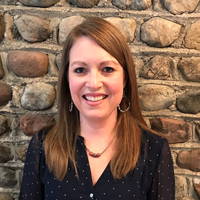At 39 years old, I honestly thought I knew myself pretty well. However, a leadership development project showed me that wasn't the case. While engaging in nearly twenty assessments for this assignment, I found myself progressively learning more. I walked away with an excellent understanding of who I am; I didn’t anticipate so much awareness to come out of a school assignment.
The assessment’s output shed light on my strengths, weaknesses, career, relationships, decisions I make or struggle to make, and reactions to particular circumstances. Additionally, having this information has served as the foundation to my leadership development plan for the coming year. Now, I realize I touched briefly on assessments in last month’s blog; however, I must admit that I wasn’t as keenly aware of how useful these tools would be for my personal development as a leader. With that, I feel compelled this month to encourage leaders, like yourselves, to take the time to engage in individual assessments. I will provide you with some practical ways to go about self-assessing and give some tips on what to do with the information you uncover. I guarantee it will be worth your while, especially as a leader.
I want to provide a small warning before you begin. These assessments may not produce the output you expect to see or hear. If you're completely honest with your answers, the output will provide areas of weakness for you to work on.. On the flip side, there were plenty of times I read the information and found that I was doing a better job as a leader than I initially thought, or a quality I felt I lacked came through as a strength. John Maxwell states: “When you believe that growth is possible and we commit to pursuing it, hope begins to rise within us (Maxwell, 2018, p. 209). If you approach the assessment with this mindset and look at them as a step in your own pursuit to personal growth, the transformation that can take place within you will be huge.
Now, let’s get into some of the assessments that I found extremely beneficial and try them on your own.
Assessments
Communication Styles – This free quiz administered by Glassdoor will give you a better idea of your communication style. Knowing your style will help you discover how effectively you can manage projects and direct reports and provide you with feedback on how people view you based on the way you communicate. Here is the link to this assessment: https://www.glassdoor.com/blog/quiz-whats-your-communication-style/.
The Ideal Team Player Assessment – You can find this assessment in Patrick Lencioni’s, The Ideal Team Player. Yes, it will cost around $20 to purchase the book; however, the book is also a must-read as Lencioni introduces the readers to what he believes are the three virtues of a team player, which are humility, hunger, and smartness. The assessment itself found on pages 192 and 193 will identify which area(s) may need the most development.
Clifton StrengthsFinder® Assessment – I personally accessed this assessment with a code provided with my purchase of Tom Rath’s book, How Full Is Your Bucket? Again, this book is a must-read for leaders, but the added value comes from taking the assessment that identifies your top five CliftonStrengths themes and provides a detailed report explaining who you are based on these strengths.
Stress Profiler – Again, there is a small cost to obtain this assessment as well. However, it’s worth it! It will identify your stress profile based on your overall score and label you as a stress guru (least amount of stress), a little on edge, anxious, or suggest you see a health professional (score indicating a lot of stress). The areas that lend to this stress are also identified in the booklet and give you tips for coping. Here is the link to this assessment: https://stressstop.com/products/the-stress-profiler.
Resiliency Assessment – This assessment will help you see how you react when faced with unexpected difficulties. Click on the following link: https://www.resiliencyquiz.com/index.shtml.
Burnout Self-Test – If you're a person that's having a difficult time finding passion or deriving energy in the workplace, this is the test for you. It will provide feedback on a sliding scale as to how burned out you may really be. Click on https://www.mindtools.com/pages/article/newTCS_08.htm to access this quiz.
Decision-Making Skills – This test determines how mature you are with your decision-making skills and breaks you into one of three categories. It also provides feedback on how to improve the areas where you score the lowest. Click on https://www.mindtools.com/pages/article/newTED_79.htm.
The 5 Money Personalities Assessment – This assessment identifies your primary and secondary money personality as a security seeker, saver, spender, risk-taker, or flyer. It identifies challenges you may face and how you make decisions involving money and life in general. If you have a spouse, encourage them to take this one also. Click on https://themoneycouple.com/.
5 Love Languages Assessment – This assessment is paired with Gary Chapman’s book, The Five Love Languages, The Secret to Love That Lasts. You don’t need to purchase the book to do the assessment. However, to better understand the results, I would highly recommend it. The quiz itself will help you uncover your love language as one of the following: words of affirmation, physical touch, acts of service, receiving gifts, or spending time. Have a little fun with this and quiz your spouse, significant other, kids, or anyone else you’re close with. Click on: https://www.5lovelanguages.com/quizzes/.
The list above is only a tiny sampling of the assessments available to you as leaders. There are more in-depth ones like the DISC Personality Assessment and LPI 360 – Leadership Practice Inventory. Unfortunately, these aren’t as easily accessible as the ones I provided above. They are very complex and often require a subscription to access. If you’re interested in something like this, do some research, and consider checking with your employer to see if they may already have access to these assessments. You may even be able to convince them to look into giving these assessments to all their employees as a professional development initiative.
Reflection on Assessment Results
As I mentioned earlier, these assessments have been critical to learning more about myself, and I hope that you'll take them and walk away with greater awareness as well. After taking the assessments, I strongly encourage you to take the information you obtain and read them through at least twice. This is not meant to be a quick exercise. You owe it to yourself to find some quiet time and truly reflect and ask yourself the following:
- Are there any themes?
- Were there any aha moments?
- What was the most surprising to you?
- What are you happiest with?
- What are you most ashamed of?
- Are there any weaknesses you have that you’re okay accepting and know you can lean on others to fill?
- What improvements do you want to work on, and how can you do this?
- How can you apply what you know to the organizations and teams you're on?
Once you’ve answered these questions, you’re well on your way to creating your own development plan with goals and follow-up that will move you closer to becoming a better leader and living a more fulfilling life.
Self-improvement and leadership development take time and must always be nurtured and given attention to, no matter where you are in your leadership walk. Looking at and engaging in various assessments available to you is a simple way of staying in touch. If you do not see yourself grow, retaking assessments after some time can act as a gauge to show you that you're either growing or slipping back into old habits. As stated earlier, the information may not be easy to swallow, but gathering the output is the first and necessary step to your leadership development and living a life where you can truly feel fulfilled.
References
Chapman, G. (2015). The 5 love languages, the secret to love that lasts. Chicago: Northfield Publishing.
Lencioni, P. (2016). The ideal team player. Hoboken: Jossey-Bass.
Maxwell, J. C. (2018). Developing the leader within you 2.0. Nashville: HarperCollins Leadership.
Porter, M.A.L.S., J. P., & Brusman, Ed.D, M. (2018). The stress profiler.
Rath, T., & Clifton, D. O. (2015). How full is your bucket? New York: Gallup Press.











